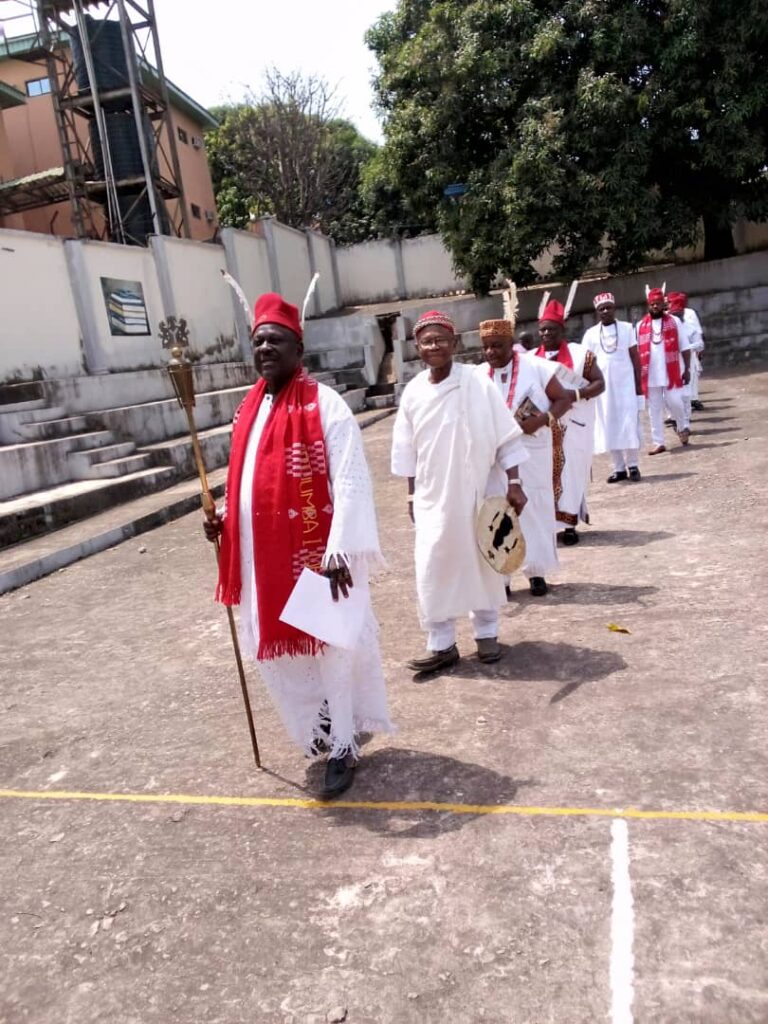Ben Ezechime, Enugu
A socio-cultural group, Nzuko Ozo Ndi Igbo, has celebrated the Igbo New Year with a public lecture on Igbo Calendar as a way of promoting and preserving its cultural heritage.
The Lecture held in Enugu, capital of Enugu State and entitled “2023 Iguaro Ndi Igbo (Igbo New Year),” has the theme “Iguaro Ndi Igbo and its relevance in Cultural and Socio-Political life of Ndigbo in Nigeria and the World.”
Mr Pat Ezeagwu, Chairman of the group said the programme was a way of reviving Igbo culture and creating awareness on the need for youths to embrace the Igbo culture.
Ezeagwu said the way the Whites had Georgian Calendar that contained months and seven days in a week, was the same way the Igbo people had four days known as ‘Izu’ comprising Eke, Orie, Afo and Nkwo.
He said, “as people rest on Sunday, it is the same way people rest on Eke day in Igboland,” adding that “if you are a good farmer, you do not joke with Eke day.”
The chairman added that Igbo calendar had 28 days and there was nothing in Georgian calendar that was not in Igbo own.
“The white only cheated us by creating their own culture in us,” he said.
Also speaking, the National President of Nzuko Ozo Ndi Igbo in Nigeria, Prof. Ike Oluka, described the group as non-political, non-profit and apex socio-cultural organisation of Ozo title holders in Nigeria.
According to him, Ozo is the highest Igbo traditional title outside the traditional ruler- Igwe or Eze, which served as means of social and economic qualification of who is who.
“They ensure peace and sees that taboo and abomination – Nso ala was not committed by standing on the part of truth all the time,” he said.
Oluka explained that Igbo tradition had traditional calendar unlike Georgian Calendar that had an unequal based months.
“Some have 28, 29, 30 and 31 days in a month and 365, 366 in a year but Igbo lunar calendar has four days of native week.
“Seven weeks of 28 days that make a month and 13 months of equal number that make a year of 364 days.
“Our calendar shares resemblance with Chinese and Jewish calendars and our ancestors led by Nri was able to calibrate on the movement of stars for their daily, weekly and yearly activities without mistake,” he said.
The Vice Chancellor, Godfrey Okoye University, Enugu, Monsignor Christian Anieke, while noting that no human being existed without culture or identity, said culture shaped and directed people.
He said that culture was as important as one’s life, adding that there was need for Igbos to go back and retrace their roots.
“They should go back to those Igbo stories of Mbe – tortoise and its wisdom, the same ideology, that makes Igbo people unique and wise,” he said.
Anieke praised the Labour Party Presidential candidate, Mr Peter Obi, describing him as symbol of the Igbo wisdom in Mbe story given the manner he responds to issues.
He observed that, even when insulted and cajoled, Obi would still give a positive response, saying, “this is what I want all Igbo people to learn, an ability to do things with wisdom.”
The keynote speaker, Prince Chukwuemeka Onyesoh from Nri in Anambra State, noted that, it was absolutely wrong to say that Igbos had no cultural history and were not civilised before the coming of the white men.
He said the problem was created partly by the colonial masters, missionaries and substantially by the politicians.
“The apparent misrepresentation of Igbo culture by Nigerian scholars has been a major concern to me over the years,” he said.
He added that Igbos had organised kingdom, culture and kingship before colonisation and before many kingdoms in Nigeria.
Earlier, the Chairman, Planning Committee of 2023 Iguaro Ndi Igbo, Dr Alex Ogbonnia emphasised the need for all Igbos to join hand to take their culture to greater heights.
He said the idea of the group was to teach the younger generation on the need to uphold and promote their culture.
Ogbonnia, who is also the Publicity Secretary of Ohanaeze Ndi Igbo, insisted that Ndigbo must identify with their roots and uphold those cultural values they were known for and ensure they do not go into extinction.
He commended the participants for finding time to attend the programme, stressing that the group would continue to organise such events that sustain and promote Igbo culture.

